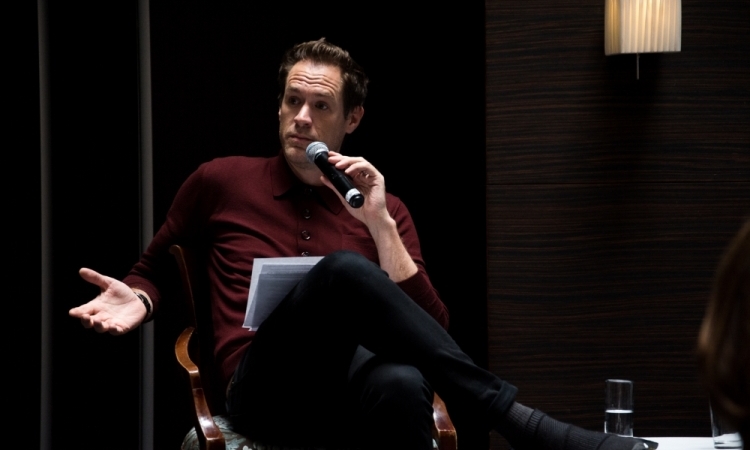Inside the Writers' Room
»Leave your ego outside the writers' room!« (Ben Harris, Serial Eyes)


Monday afternoon saw a masterclass on writers' rooms by Ben Harris, a UK writer and producer, who shared his personal practical knowledge on writing series such as BBC One drama The Musketeers and CBS/TF1 co-production series Ransom, as well as on having experienced both the UK system of writing and the American system of writers' rooms.
Harris is also an instructor at Serial Eyes, a European postgraduate training programme for television writers and producers. Serial Eyes prepares the next generation of European TV writer-producers to bring first-class serialized storytelling to the television screen. In small classes taught in English by top industry professionals, twelve participants from all across Europe learn to develop, write and produce serial productions independently and as a part of a team, with a focus on engaging specific audiences.
Following a quick introduction of the training programme, Harris began with shedding light on his view on the problems of the UK system of drama writing, in which writers come and go and rarely meet other writers. Having written for the Sky One Drama Dream Team for three years, he was appointed Series Producer and took the chance to set up a writers' room system. The system, more common in USA than Europe, functions as a machinery comprised of a team of writers (usually five to six) and a showrunner who works both as a producer as well as a writer. A writers' room basically means all writers sitting and working together during the full length of the creative process and as Harris pointed out, it is the best way of work for the project to be successful as a whole. In this way, the show becomes a joint project and is not split into several creations by separate authors. While the writers work as a team, and set their ego aside for that purpose, Harris sees the role of the showrunner as that of a custodian of the original script.
Harris also explained the method of preparing teasers and acts with the help of a simple system of a board and cards, and of constant collaboration that inlcudes revisions and routines, all of which should happen before actually writing scripts. The cards with brief plans for scenes function as a way of distilling writers' thoughts and pressing them to slow down and rethink their ideas. With a completed board, Harris claims, you have an episode which works, and this is what you own to your producers.
At the end of the session Harris demonstrated this way of working by taking us through prepared script cards he used while working on a trailer of Ransom, as well as discussed smart characters and constant conflict – the two traits that in his opinion make a quality TV show. By giving an anecdotal example of a clever solution of a conflict in the notorious series Breaking Bad that took the writers a week of thinking, Harris once again proved why several writers working together can make magic happen.
Petra Meterc